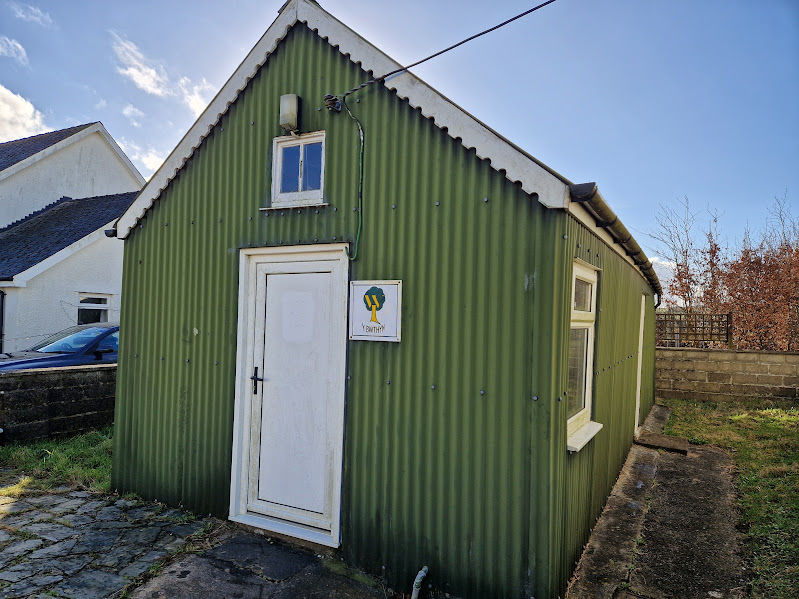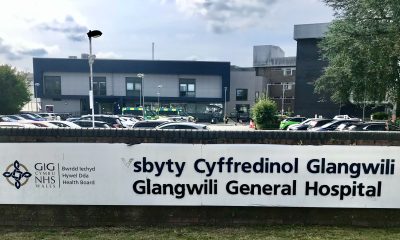News
Parents of autistic children get answers

County Hall
A LOCAL parent has expressed her concerns and frustration over the provision for education from Pembrokeshire County Council (PCC) for those on the Autistic spectrum. Speaking with The Herald, Lisa O’Sullivan recounted her personal experience with PCC over her son James: “He is clever, but autistic, and cannot mix with peers or indeed people he doesn’t know. He was capable of GCSE’s but he has anxiety issues associated with autism. He went to Bush in September 2011, initially to have 60% in mainstream and 40% in the autism centre, and was fine, but he started attending the autism unit more as he started absconding.
“By October he couldn’t cope and I was attending constant meetings with the school and PCC in order to find a solution. They didn’t understand him, the transition wasn’t done properly, and they weren’t aware James was a ‘runner’ before he went from primary to secondary school. He lasted there until April 2012 and then was pulled out of the school (the school with a dedicated autism centre!) at this point he was at home, with no support and no academic work at all, with no offer of another school (but then why would he when he was already at the autism centre?). He had no books or anything.” After calling every week, Lisa O’Sullivan said she finally had a tutor appointed for her son at the end of the school year in 2012.
She explained that initially he had 7 hours of tuition a week which was recently changed this year to 5, as he now attends a half day at the school. She continued: “He is too stressed to go on his own so I have to go with him. He has come on well with the tutor but he has missed so much school he is now miles behind. Isn’t the specialised unit supposed to know how to deal with pupils like James? I question the idea that he is only entitled to five hours of tutoring a week. What is James supposed to do know he has missed so much schooling?” The Herald spoke exclusively with PCC’s Head of Inclusion, Nichola Jones, who opened her response by defending the autism unit at Bush, and provision generally, as well as the rigorous training available to Pembrokeshire’s education providers for children with ASD: “The needs of youngsters with ASD vary widely, with some youngsters able to lead relatively independent lives whilst others needing a much more intense package of support. Each child’s needs are met individually.
The local authority work with families, schools and young people to put in place the best possible package of provision. The local authority have recently appointed a speech and language therapist to take forward ASD provision together with three outreach support workers. “The team will be fully up and running in January 2014 and will work closely with the specialist communication outreach team consisting of a teacher, three teaching assistants and three speech and language therapists. There are 24 specialist places currently available for children at key stage one and two, and a further 30 places for children and young people at key stage three and four. “The secondary specialist provision will also be providing outreach support to neighbouring secondary schools. The special school provides specialist outreach support and provision for more complex youngsters.
An annual programme of training and development takes place throughout the year to help schools and parents support children and young people with ASD. “The introduction of the ASD friendly school training is being rolled out to all schools providing training in relation to the impact on young people as well as strategies for reducing environmental triggers. The roll out in November of this year of the early screening pack for nursery aged children provides schools with the tools for identifying children whose communication skills are delayed or unusual as well as interventions and where appropriate an onward referral to specialist services. An ASD training and resource pack has also been developed for schools and is being launched in the New Year providing schools with a range of advice, guidance and intervention approaches throughout the key stages.”
She was also keen to point out how PCC were effective in inclusion, stating: “Schools and the Inclusion Service within Education in Pembrokeshire work very hard to ensure that agencies work together to meet the holistic needs of the child wherever possible. Frequently this involves staff speaking to social care, youth workers, sports clubs and the voluntary sector to try and co-ordinate support for young people (with parental and child’s consent where appropriate).” The Herald was also keen to know what the procedure of diagnosis was, given the complaints of many parents that it took simply too long to obtain. Nichola Jones said: “In the past the waiting time for an assessment has been up to five years. This has been reduced considerably in the last year and is currently around 26 months. Early screening tools and a building capacity programme for schools is providing school staff with the right approaches for supporting children and young people who have ASD traits without a formalised assessment.”
She also commented on Lisa O’Sullivan’s concerns about how her son’s transition was handled: “Transition ordinarily takes place through the school ALNCO and for more complex youngsters a key worker is currently employed by the local authority to work with schools, families and the young person to ensure the best possible transition between key stages.” Finally she commented upon the provision of education, once the child has been excluded from mainstream, and though she did not address the meagre 5 hours James O’Sullivan receives, she did say: “The Local Authority has a duty to provide an ‘efficient’ education which meets the age, aptitude and ability of the child in agreement with the parent.” Of concern to parents, may be, the the statistic from the most recent Inclusion Services Annual Report that stated that over 16% of Pembrokeshire families wait for over half a year for a statement. This means that children who go to school in September do not receive a statement until the following March or April.
Local Government
First Minister left red-faced as Labour candidate pulls out during Hakin campaign visit

Candidate says withdrawal follows ‘abuse’ towards candidate’s son and backlash over Withybush Hospital downgrade plan
THE FIRST MINISTER was left in the embarrassing position of arriving to campaign in the Hakin ward without an active candidate. Labour’s by-election hopeful withdrew from the race on the same day as a high-profile visit to support her campaign.
The visit had been organised to support Labour candidate Nicola Harteveld, but she failed to appear, leaving party activists canvassing in the ward without her and apparently unaware she was about to pull out of the contest.
Harteveld later confirmed she had been considering her position before announcing her withdrawal shortly afterwards.
The former Labour candidate confirmed she was stepping back from the Pembrokeshire County Council by-election following verbal abuse directed towards her youngest son, bringing an abrupt end to the party’s campaign after nominations had already closed.
The development meant Welsh Labour could not field a replacement candidate, leaving the party effectively without representation in the contest despite a scheduled campaign visit by First Minister Eluned Morgan MS and party activists.

‘Abuse’ towards child
In a video statement released on social media, Harteveld said the decision followed an incident in which her son was allegedly shouted at by two men while walking home from volunteering.
“My youngest was walking home… and two men on the opposite side of the road shouted across ‘tell your mother she’s a Labour loving c***’,” she said.
She said her son was “absolutely devastated” by the incident.
“My family comes first. I am not prepared to put them in the line of fire to be targeted because of something that I’m doing,” she added.
Final decision
Harteveld, who currently serves as a town councillor, said she had spent several days reflecting on whether continuing in the election was compatible with her personal values before the incident involving her son became “the final straw”.
“My morals, my views and my values will not allow me to take this by-election any further,” she said.
She explained that she had wanted to stand in order to take residents’ concerns directly to County Hall, rather than relying on others to represent them, and believed standing as a Labour candidate would have allowed her to raise issues more directly with decision-makers.
First Minister visit confusion
Earlier the same day, First Minister Eluned Morgan MS and Labour activists were canvassing in the Hakin ward in support of Harteveld, apparently unaware she was considering withdrawing from the race.
Campaign photographs were later shared on social media showing the First Minister and party members canvassing locally. However, observers quickly noticed the absence of the candidate herself, prompting repeated questions online about her whereabouts.
Multiple commenters asked “Where is the candidate?” beneath the post, with the situation attracting significant criticism from some social media users.
Shortly afterwards, Harteveld confirmed she was withdrawing from the election.
A post by the First Minister praising what she described as a “great response in Hakin for Nicola Harteveld & Welsh Labour” while also addressing concerns about Withybush Hospital services was later deleted after attracting a large number of comments, many of them critical of Labour and Welsh Government health policies.

Healthcare tensions backdrop
The by-election campaign has taken place against the backdrop of continuing anger across Pembrokeshire over decisions affecting Withybush Hospital, which Harteveld acknowledged had “rocked our community”.
She described personal experiences of travelling long distances for medical appointments with her partner, saying such situations contributed to frustration among residents.
The hospital controversy has become a dominant political issue locally, with strong emotions expressed during campaigning and on social media.
Political impact
Because Harteveld withdrew after the legal deadline for nominations closed, Welsh Labour cannot substitute another candidate. Her name may still appear on ballot papers depending on printing arrangements, although she is no longer campaigning.
The sequence of events left Labour campaigning in the ward without an active candidate and represents a significant setback for the party locally, particularly given the personal involvement of the First Minister in the visit.
Election background
The by-election, scheduled for Tuesday, March 17, was called following the death of Independent councillor Mike Stoddart, who had represented the Hakin ward for many years.
The remaining candidates are:
Derrick Abbott (Independent)
Sam Booth (Wales Green Party)
Lee James Bridges (Independent)
Duncan Edwards (Independent)
Brian Taylor (Welsh Conservative)
Scott Thorley (Reform UK)
Sam Warden (Welsh Liberal Democrats)
Business
Farmers cautious but resilient as costs remain high across Wales

Major supplier says confidence lower despite signs of stability returning
FARMERS across Wales are facing another difficult year as input costs remain significantly higher than before the pandemic, according to new industry insight from agricultural supplier Wynnstay Group.
The company, which has deep roots in rural Wales and generates around sixty per cent of its retail revenue in the country, says confidence among farmers is lower than this time last year, with rising costs, policy uncertainty and tightening margins influencing spending decisions.
However, there are also signs of resilience, with many producers focusing on efficiency and forward planning to cope with ongoing pressures.

Wales at heart of business
Wynnstay, originally founded by tenant farmers in Mid Wales in 1918, has grown into a major UK agricultural supplier serving more than 20,000 farming customers through manufacturing sites, stores and on-farm services. The group employs hundreds of staff across the UK and operates a nationwide distribution network supporting livestock and arable producers.
The company says Welsh farming businesses continue to play a central role in its commercial performance and long-term growth strategy.
Cautious investment decisions
According to Wynnstay, farmers are delaying some investment decisions but are increasingly seeking value-driven solutions that improve productivity.
Feed volumes have increased across the company’s Welsh store network over the past year, reflecting demand for blended feeds that offer greater flexibility and cost control. Rather than reducing purchases outright, many farmers are matching spending more closely to performance and output.
Fertiliser demand has also been strong, with sales ahead of last year, although some farmers have delayed buying in the hope prices may fall. Global supply pressures and rising gas costs mean prices are expected to remain firm into the busy spring season.

Costs still far above pre-Covid levels
Industry data shows overall farm input costs remain significantly higher than before 2020, with feed, fertiliser, fuel, electricity and machinery all continuing to put pressure on farm margins.
While some costs have eased from their peaks, they have not returned to previous levels, influencing buying behaviour across the sector.
Margins for livestock and dairy farms were strong last year, but Wynnstay says they are now tightening, particularly in the dairy sector where milk prices have fallen and volatility remains high.

Pressure on family farms
Smaller family-run farms are under greater strain than larger commercial operations, with less financial resilience to absorb rapid market changes. Reports of rising closures among family farms, particularly in dairy, reinforce concerns about the sector’s long-term sustainability.
Government policy changes are also contributing to uncertainty. The transition away from the Basic Payment Scheme and wider tax reforms have led many farmers to postpone larger investments until there is clearer long-term stability.

Local reaction
Pembrokeshire farmer Chris James said the situation reflected what many farmers were experiencing locally.
“We’ve definitely noticed the squeeze over the past year or two,” he said. “Costs for feed, fertiliser and fuel are still much higher than they used to be, and that makes you think twice about every decision. Most farmers I know aren’t cutting back on production — they’re just trying to be more efficient and careful with spending.”
He added: “People want to invest and move forward, but it’s hard when you don’t know exactly what the long-term policy picture will look like.”
NFU Cymru has also warned that rising costs and policy uncertainty continue to weigh heavily on farm businesses across Wales, with confidence affected by concerns over future support schemes and wider economic challenges. The union has called for greater long-term certainty to allow farmers to invest with confidence and maintain domestic food production.

Weather shocks impact behaviour
Extreme weather during 2025 — including a very dry spring followed by periods of intense heat and a challenging wet autumn — also affected purchasing patterns, with farmers spacing orders and prioritising essential inputs as conditions changed.
Ordering behaviour is now returning to more normal patterns as conditions stabilise.
Outlook for 2026
Despite ongoing pressures, Wynnstay says it is cautiously optimistic about the year ahead.
Many farmers are making careful decisions around efficiency, nutrition and planning, and the company believes there are opportunities for businesses to strengthen their position through 2026 with good cost control and smart investment.
Summing up the sector, the company said Welsh agriculture remains resilient, with farmers showing determination and adaptability despite continuing challenges.
Community
Community meeting planned to secure future of historic Boncath building

Residents invited to support bid to buy former WI meeting room for community use
A PUBLIC meeting has been called in Boncath as residents prepare plans for a community buy-out of a historic corrugated iron building that has served local people for generations.
Villagers will gather at Boncath Village Hall on Tuesday (Feb 24) at 7:00pm to discuss proposals to purchase Bwthyn Boncath — the former Women’s Institute meeting room — and transform it into a community heritage space for the village.

WI members support community purchase
Local WI members have already agreed to offer the community first refusal on the building, paving the way for a potential community-led purchase.
Supporters say the project would preserve an important piece of local heritage while creating a flexible space for events, exhibitions, and activities in the heart of the village.
PLANED helping lead initiative
The meeting will be led by Cris Tomos of PLANED, the community development charity that previously helped facilitate the community purchase of Tafarn Sinc in Rosebush in 2017.
Mr Tomos said the Boncath project could become another example of successful community ownership in North Pembrokeshire.
He said: “It would be great to have another corrugated building owned by the community in North Pembrokeshire — especially in 2026 as Tafarn Sinc celebrates its 150th anniversary.”
Organisers estimate that around £12,000 will be needed to secure the purchase, with further fundraising planned to support restoration and future use.

How to get involved
Anyone interested in supporting the project or learning more is encouraged to attend the public meeting.
Further information is available via the Bwthyn Boncath Facebook page or by contacting PLANED on 01834 860965.

Photo caption: Community members gather to support plans for the purchase of Bwthyn Boncath (Pics supplied).
-

 Health3 days ago
Health3 days agoWithybush loses emergency surgery in shock health board decision
-

 Health3 days ago
Health3 days agoHealth board confirms major hospital changes across west Wales
-

 Health1 day ago
Health1 day agoConcerns grow over Bronglais stroke plans as politicians demand clarity
-

 Health3 days ago
Health3 days agoHealth board: Changes will bring “resilience and sustainability” to West Wales services
-

 Business5 days ago
Business5 days agoMS’s host business advice surgery following demand from Business Rates Online Forum
-

 Community6 days ago
Community6 days agoHywel Dda hospital services decisions will be made next week
-

 Business5 days ago
Business5 days agoSvitzer crews at Milford Haven vote for industrial action in pay dispute
-

 Crime6 days ago
Crime6 days agoMan who attacked woman outside Milford Haven bar ‘shows no remorse whatsoever’

























